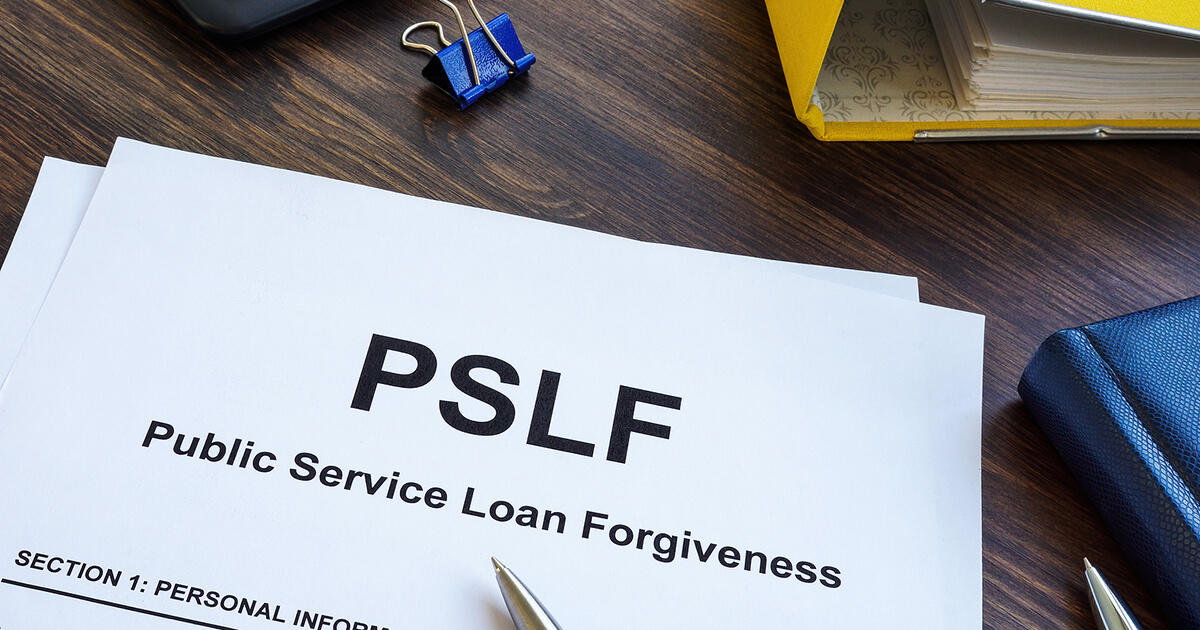Millions of U.S. adults have invested in their futures by earning college degrees. And financial aid—including federal student loans—helps make that possible.
But did you know that under special loan forgiveness programs, eligible teachers can have federal student loan debt forgiven?1 Find out more about qualifying for loan forgiveness in this roundup of eight facts about debt-canceling programs.
-
Under the Teacher Loan Forgiveness (TLF) program, you may be eligible to receive forgiveness of some portion of Direct Subsidized and Unsubsidized Loans, Federal Stafford Loans, and federal consolidation loans.1
-
To qualify, teachers must have a bachelor’s degree, full state teacher certification, and five complete, consecutive academic years of full-time teaching in a low-income school or educational service agency. (One of those years must be after the 1997–98 school year.) But, teachers meeting those criteria are ineligible if they had any certification or licensure requirement waivers during the five-year period.1 Learn more about other potential eligibility requirements.
-
Secondary math and science teachers and primary and secondary special education teachers who meet the eligibility criteria may receive up to $17,500 in loan forgiveness. Other teachers may receive up to $5,000 in loan forgiveness.1
-
The U.S. Department of Education maintains a database of schools and educational agencies that qualify as low-income schools. Search the Teacher Cancellation Low Income Directory to find out if your school is listed.1
-
To apply, you’ll need to complete a Teacher Loan Forgiveness Application and obtain certification from the school or agency where you taught affirming that you met the requirements. Then, you’ll submit it to your loan servicer. If you need help identifying your servicing company, the DOE may be able to help: Find your servicer.1
-
If you’re in default on a loan, you aren’t eligible for this loan forgiveness program for teachers unless you’ve made qualifying repayment arrangements.1
-
If you have Federal Perkins Loans, you may be eligible for complete loan cancellation over a period of years. This program has its own unique qualifying criteria but shares the TLF requirement of teaching in a school serving low-income families.2 Learn more about qualifying: Federal Perkins Loan cancellation.
-
Teachers also may qualify for another form of loan forgiveness through the Public Service Loan Forgiveness Program (PSLF). This option is available to people working for qualifying employers, which include government organizations at the federal, state, local, or tribal level, and some nonprofits. There have been some recent changes to the program, and others will be implemented in July 2023. Stay updated and learn more: PSLF.3
Get Started on a Teaching Degree Online
When you’re ready to advance your teacher training, you’ll find Walden University offers elementary education degrees online that help prepare you for licensure. Many working adults find online learning is a good fit because it makes it possible to earn a degree while balancing work and family responsibilities.
At the undergraduate level, Walden offers a BS in Elementary Education (Teacher Licensure) online degree program. Through coursework, virtual field experiences, practice simulations, and more, you’ll have the chance to gather the skills you need to become a teacher.
Another online elementary education degree option is Walden’s Master of Arts in Teaching (MAT) - Elementary Education. This graduate program for teachers also offers virtual learning experiences to complement your coursework.
Walden’s Richard W. Riley College of Education and Human Sciences is accredited by the Council for the Accreditation of Educator Preparation (CAEP), which means it has met rigorous standards for educator preparation. A college with CAEP accreditation can help you build the foundation you need to earn an education degree that can launch, or advance, your teaching career.
Walden University is an accredited institution offering online BS in Elementary Education (Teacher Licensure) and Master of Arts in Teaching (MAT) - Elementary Education degree programs. Expand your career options and earn your degree in a convenient, flexible format that fits your busy life.
1Source: https://studentaid.gov/manage-loans/forgiveness-cancellation/teacher
2Source: https://studentaid.gov/manage-loans/forgiveness-cancellation/perkins#perkins-loan-teacher-cancellation
3Source: https://studentaid.gov/manage-loans/forgiveness-cancellation/public-service
Accreditation
Walden University’s Richard W. Riley College of Education and Human Sciences is accredited based on the Council for the Accreditation of Educator Preparation (CAEP) Standards through June 2026. This accreditation covers specific Walden initial teacher and advanced educator preparation programs, including the BS in Elementary Education, Master of Arts in Teaching (MAT) – Special Education specialization, MS in Education – Educational Leadership and Administration specialization, and EdS in Educational Leadership and Administration. The MAT-SPED, MSED-ELA, and EdS-ELA programs were reviewed by Specialized Professional Associations (SPAs), which define content-area standards for programs, and achieved national recognition.
CAEP promotes excellence in educator preparation through quality assurance and continuous improvement. Walden’s College of Education and Leadership has earned national accreditation by demonstrating excellence in the areas of content and pedagogy, clinical experiences, selectivity, program impact, and capacity for continuous improvement. CAEP is a Council for Higher Education Accreditation (CHEA) – recognized national accreditor for educator preparation.
Licensure
Walden is approved by the Minnesota Professional Educator Licensing and Standards Board (PELSB) to offer a program leading to a Minnesota Tier 3 license in Elementary Education. Candidates seeking licensure in Minnesota are responsible for completing all Minnesota requirements beyond Walden’s state-approved program, including passing the Minnesota Teacher Licensure Exams. The Minnesota Professional Educator Licensing and Standards Board (PELSB) is solely responsible for reviewing applications and issuing licenses.
Individuals interested in licensure in states other than Minnesota may qualify by virtue of completing a state-approved educator preparation program; however, individuals must review their state’s regulations to ensure the program meets all requirements, paying particular attention to any requirements specific to out-of-state program completers. Individuals who reside in certain states may be ineligible to enroll in this program. Walden Enrollment Specialists can provide guidance on licensure questions; however, it remains the individual’s responsibility to understand and comply with all state licensure requirements. Walden makes no representation or guarantee that completion of Walden coursework or programs will permit an individual to obtain state licensure.
Walden University is accredited by The Higher Learning Commission, www.hlcommission.org.




